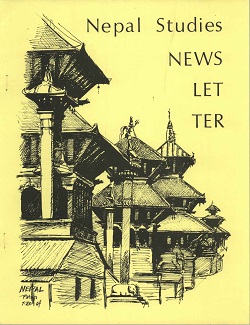Author Biography
Kyle Gardner (MA, History, University of Chicago, 2011) is a PhD student in International History at the University of Chicago. He earned his BA in History from Wesleyan University in 2006. His dissertation project, "The Frontier Complex: Environment, Technology, and Law in the Northwestern Himalaya," examines how and why British colonial practices and institutions along India’s northwestern Himalayan frontier were shaped by the environmental, cultural, and political particulars of the region. He has studied (and continues to study) Tibetan, Urdu, and Ladakhi.
Abstract
This article examines the different ways in which the British conceived of and configured the northwestern Himalaya in the mid-19th century. It focuses on the proposal, construction, and justification of the Hindustan-Tibet Road from the late 1840s through to the 1860s. By examining this particular episode in British frontier formation, I hope to show that the pacific perception of this “natural frontier” region allowed for a plurality of configurations that would not be possible on the more contested and violent imperial fronts. Only when this region was integrated into a conceptually unified frontier did it become subsumed into a larger imperial security rubric—and once again became considered insecure.
Acknowledgements
I would like to thank Professors James L. Hevia and Mark Philip Bradley as well as the anonymous reviewers for providing insightful comments and suggestions on drafts of this article. I would also like to thank Dr. Elena Bashir for introducing me to the journal.
Creative Commons License

This work is licensed under a Creative Commons Attribution 4.0 License.
Recommended Citation
Gardner, Kyle J.. 2014. The Ready Materials for Another World: Frontier, Security, and the Hindustan-Tibet Road in the 19th century Northwestern Himalaya. HIMALAYA 33(1).
Available at:
https://digitalcommons.macalester.edu/himalaya/vol33/iss1/11


